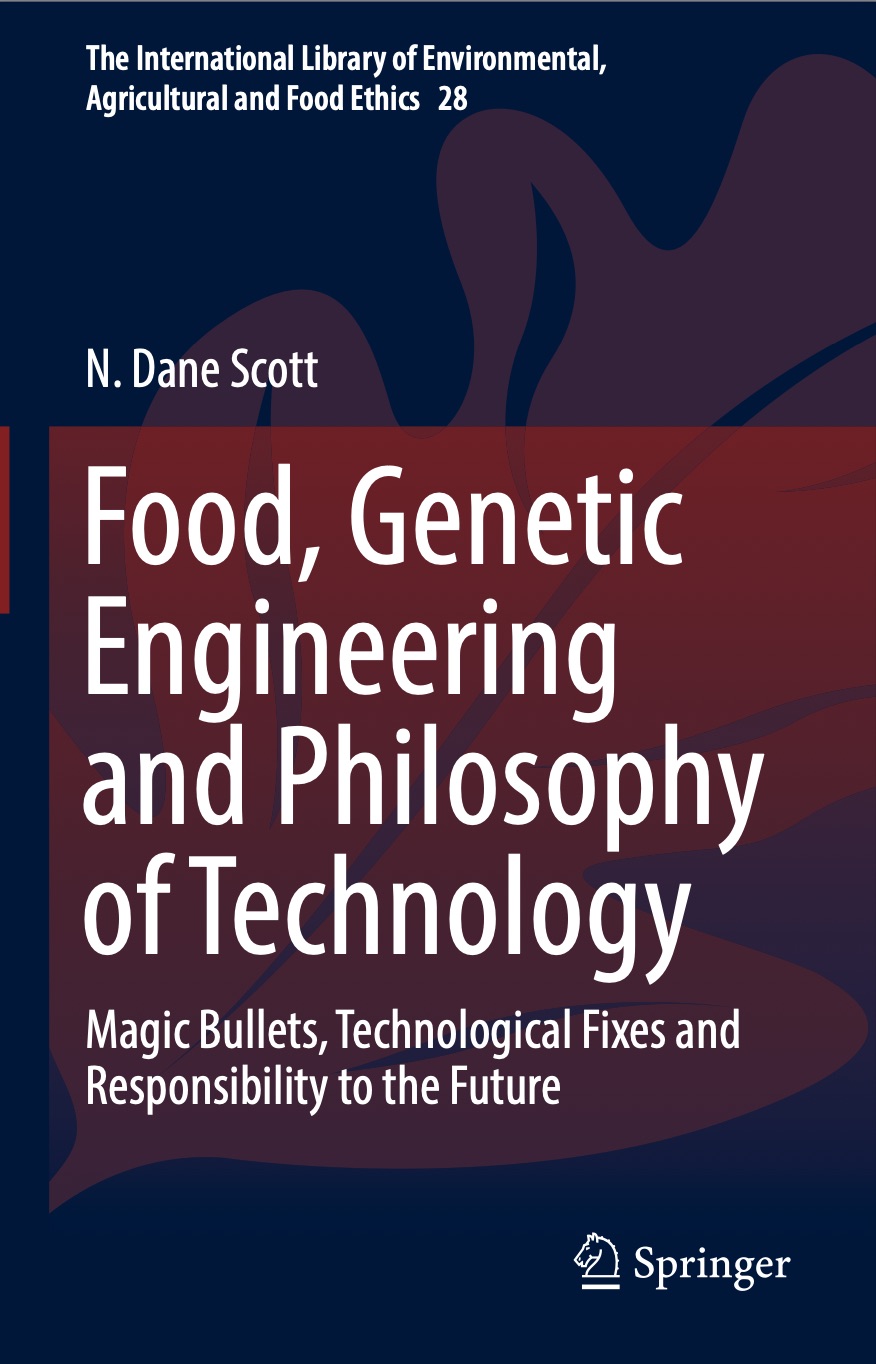N. Dane Scott:
Food, Genetic Engineering and Philosophy of Technology, 2018

Introduction
Our civilization, which subsumes most of its predecessors, is a great ship steaming at speed into the future. It travels faster, further and more laden than any before. We may not be able to foresee every reef and hazard and headway, but understanding her design, her safety record, and the abilities of her crew, we can, I think, plot a wise course between the narrows and the bergs looming ahead..... The vessel we are now aboard is not merely the biggest of all time; it is the only one left.... The world has grown too small to forgive us any big mistakes - Ronald Wright, A Short History of Progress Biotechnology is a rapidly expanding and branching area of research that includes transgenics, synthetic biology, and genomic editing. These powerful technologies are increasing the rate and expanding the scope of possibilities for engineering life to solve human problems. Food genetic engineering (GE) is ethically charged and highly controversial. Environmental and consumer activists groups such as Greenpeace International and Friends of the Earth International have launched sustained and effective campaigns against GE foods.
.....
On the other side of the debate, life science corporations and governments have spent billions of dollars in research and development of GE crops and foods. In 2016, nearly one third of the living Nobel laureates (108 people) signed an open letter responding to Greenpeace's campaigns against GE foods. The scientists addressed the letter to environmental groups, the United Nations, and governments. It accuses Greenpeace of misrepresenting the "risks, benefits and impacts" of genetically altered food plants. This area of research and development is the source of an intense international debate with no end in sight. Sheldon Krimsky and Jeremy Gruber observe that, "while there have been longstanding controversies between vegetarians and omnivores or organic versus conventional farming, rarely has there been a time when food has divided society into two major warring camps". How is one to understand this longstanding controversy over food genetic engineering? What contributions should the rapidly expanding list of powerful biotechnologies play in the future of food and agriculture?
.....
The controversy over GE is historically significant. It marks a new period when humanity is reassessing the technological enterprise that has created modern civilizations. The expanding list of biotechnologies in agriculture (and medicine) is one focal point of a philosophical dispute over the idea of technological progress and the future of life on earth. Paul B. Thompson has labeled the international controversy over GE a quandary and identified it as a "wicked problem". Wicked problems are ones where "important values are at stake, factual issues are shrouded in uncertainty, options for moving forward are mutually exclusive and have irreversible consequences, but there is no fundamental agreement on what the problem is". Scholars often cite climate change and chronic poverty as examples of wicked problems. The following chapters are an attempt to make sense of the GE quandary and move beyond the polarized, ideological conflict. I will organize these efforts by using an overarching heuristic to examine key theories and concepts in the GE debate.
